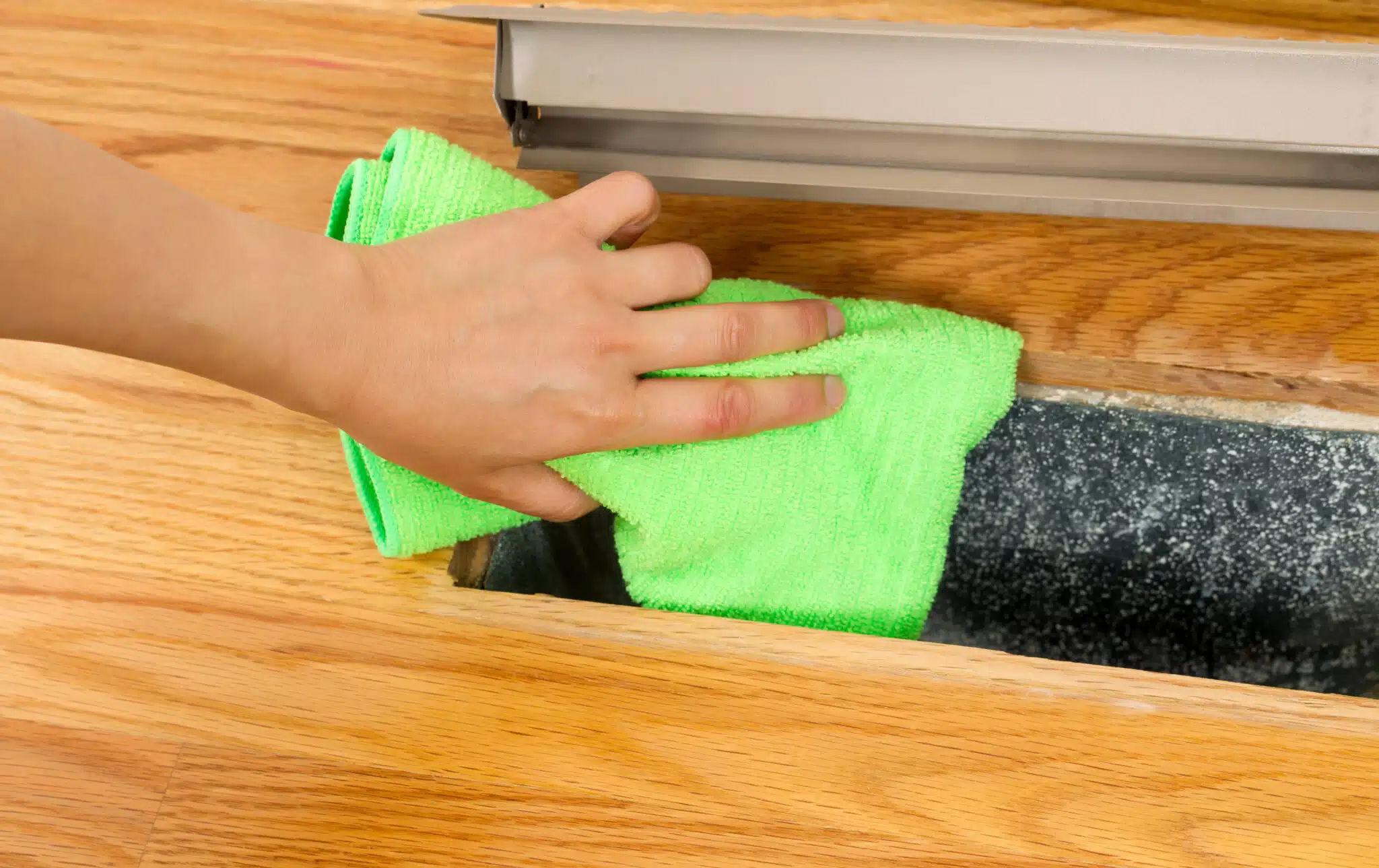Space heaters are a popular solution to combat Quakertown’s November chill, providing quick warmth for small spaces. However, using them safely is crucial to avoid potential risks. Proper placement, regular maintenance, and correct operation are essential to ensure both comfort and safety. One Hour Heating & Air Conditioning of Lancaster offers expert advice to help you use space heaters effectively and keep your home cozy this season.
Selecting the Right Space Heater for Your Quakertown Home
Selecting the right space heater for your Quakertown home is essential for staying warm and safe during Pennsylvania’s cold November. With various options available, it’s important to choose one that fits your needs.
Start by considering the size of the room you want to heat. Smaller rooms, like bedrooms or offices, require less powerful space heaters, while larger living spaces need models with higher wattage.
Safety features should be a priority. Look for space heaters with automatic shut-off systems that activate if the unit overheats or tips over. Cool-touch exteriors and overheat protection are especially important for homes with children or pets, reducing the risk of burns or fire hazards.
Additionally, consider the type of heater that best suits your space. Ceramic heaters are great for quick, even heat in smaller areas. Oil-filled radiators provide long-lasting warmth, making them ideal for larger spaces. Infrared heaters efficiently heat specific areas by warming objects and people directly.
By choosing the right space heater for your home, you can enjoy reliable comfort while maintaining safety throughout the cold months. A well-selected space heater ensures your home stays warm without compromising safety.
Positioning Your Space Heater for Maximum Safety
Properly positioning your space heater is essential for both warmth and safety during the colder months. When placed incorrectly, space heaters can pose serious risks, but with careful attention to placement, you can ensure safe and effective heating.
Always keep your space heater at least three feet away from flammable materials like curtains, furniture, and bedding. This reduces fire hazards and allows the heater to distribute warmth evenly throughout the room. Additionally, it’s important to place your space heater on a stable, flat surface. Avoid positioning it on carpets, beds, or other soft surfaces that can block airflow or cause overheating.
Choose a location away from high-traffic areas, such as hallways or doorways, to prevent the heater from being accidentally knocked over. Placing it in a more secluded part of the room with enough clearance helps reduce the risk of accidents.
Finally, avoid using space heaters in damp or humid areas like bathrooms or kitchens, as moisture can damage the heater and increase the risk of electric shock. By carefully positioning your space heater, you can enjoy warmth and peace of mind throughout the cold season.
Keeping an Eye on Power Sources and Electrical Safety
Maintaining electrical safety when using space heaters is essential to preventing dangerous situations, such as electrical fires or power overloads. Space heaters draw significant power, so it’s crucial to be mindful of how and where you plug them in. Follow these five critical steps to ensure that your space heaters operate safely and efficiently this winter.
-
Plug Directly Into Wall Outlets
Always plug your space heater directly into a wall outlet. Avoid using extension cords or power strips, as these can overheat and pose serious fire risks. Space heaters pull a lot of power, and only a direct connection to a wall outlet can safely handle the load.
-
Inspect Power Cords Regularly
Frequently check your space heater’s power cord for any signs of damage. Frayed wires, cracks, or discoloration in the cord are red flags that indicate it’s time for a replacement. Never use a heater with a damaged cord, as this can lead to electrical fires.
-
Keep the Outlet Uncrowded
Ensure your space heater is the only device plugged into the outlet. Running other high-wattage appliances on the same circuit, like microwaves or refrigerators, increases the risk of overload and can cause the circuit breaker to trip or worse, create a fire hazard.
-
Monitor for Overheating
Pay close attention to your space heater and the outlet while in use. If the plug feels hot or you notice unusual odors, unplug the heater immediately. This could indicate an electrical issue that needs attention.
-
Limit Use of Old or Damaged Outlets
If the outlet shows any signs of wear or sparks, avoid using it for your space heater. Old outlets can’t always handle the demands of modern appliances, including space heaters, and using them could result in an electrical fire.
Following these steps ensures that your space heater operates safely while minimizing the risk of electrical hazards. Paying proper attention to power sources and electrical safety will keep your home warm and secure throughout the winter season.

Regular Maintenance and Inspection of Space Heaters in November
As the cold weather arrives in November, space heaters become a key tool for keeping your home warm and comfortable. However, to ensure they operate safely and efficiently, regular maintenance and inspection are essential. By following these five steps, you can prevent potential hazards and enjoy reliable heating all winter long.
-
Inspect for Visible Damage
Before turning on your space heater for the season, carefully check for any visible damage. Look for frayed wires, cracked casings, or broken components. If you spot any issues, repair or replace the heater immediately. Using a damaged unit significantly increases the risk of electrical fires and malfunctions.
-
Clean the Heater Regularly
Dust and debris can accumulate on space heaters, especially if they’ve been stored away for months. Regular cleaning helps prevent overheating and improves airflow. Use a soft cloth to wipe down the exterior and clean any vents, ensuring your heater runs efficiently and safely.
-
Test Safety Features
Modern space heaters are equipped with essential safety features like automatic shut-off, tip-over protection, and overheat sensors. Test these features regularly to make sure they’re functioning properly. These safeguards are vital in preventing accidents, so never skip this step.
-
Monitor Power Cords and Plugs
Check the power cords and plugs for any signs of wear or overheating. A damaged cord can pose a serious electrical hazard, so make sure everything is in good condition before plugging in your heater.
-
Schedule a Professional Inspection
For added peace of mind, consider having a professional inspect your space heater. An expert can identify issues that may not be visible to the untrained eye, ensuring your heater operates safely throughout the season.
Completing these maintenance steps ensures your space heater will keep you warm while reducing the risk of accidents. A well-maintained heater is essential for a safe and cozy winter season.
Turning Off Space Heaters When Unattended
Turning off space heaters when they are unattended is one of the simplest yet most effective ways to ensure safety in your home. Space heaters provide much-needed warmth during colder months, but leaving them on while you’re away can lead to serious hazards. No matter how advanced the safety features of your heater are, they should never replace the practice of turning the unit off when not in use.
One of the most significant risks of leaving space heaters on is the potential for fires. Even with built-in shut-off features, accidents can still occur. Nearby items like curtains, furniture, or bedding can overheat and ignite if left too close to a running heater. Turning the heater off whenever you leave the room eliminates this possibility and keeps your home safer.
Space heaters also draw a lot of power. Keeping them running for extended periods without supervision can strain electrical systems, leading to overheating and increasing the risk of electrical fires. By turning them off when you’re not around, you reduce the stress on your home’s wiring and prevent potential issues.
This simple habit not only keeps your home safe but also saves energy, making it an easy and responsible way to manage your space heater usage.
Child and Pet Safety Around Space Heaters in Your Home
Ensuring the safety of children and pets around space heaters is essential to creating a secure environment during the colder months. Space heaters can quickly warm up a room, but without proper precautions, they can also become hazards. By following these five critical steps, you can keep your home both warm and safe while protecting your children and pets from potential dangers.
Position Heaters in Safe Locations
One of the most important steps is placing space heaters out of reach of children and pets. Keep them away from high-traffic areas where kids play or where pets roam freely. Placing heaters on a stable, elevated surface can help reduce the risk of them being tipped over or touched accidentally. This reduces the chance of burns or injuries, especially in busy households.
Choose Heaters with Advanced Safety Features
Invest in space heaters that come with automatic shut-off functions, tip-over protection, and cool-touch exteriors. Automatic shut-off features will turn off the heater if it overheats or gets knocked over, making them essential in homes with children and pets. Cool-touch exteriors help prevent burns if anyone accidentally brushes against the heater.
Create Physical Barriers
If keeping your space heater out of reach isn’t an option, consider installing barriers around it. Using safety gates or heat-resistant guards can create a physical boundary, keeping your children and pets at a safe distance. This is particularly useful in smaller spaces where finding an out-of-reach spot may be difficult.
Keep Heaters Away from Flammable Materials
Always place space heaters away from flammable objects like curtains, blankets, or upholstered furniture. If children or pets knock over these materials onto the heater, it can quickly become a fire hazard. Maintaining a clear, safe zone around the heater helps prevent such accidents.
Educate Older Children
Teach older children about the dangers of space heaters and establish clear rules. Explain why they should avoid playing near heaters or moving objects too close to them. By setting clear boundaries and reinforcing these safety lessons, you help prevent accidents and encourage responsible behavior.
By following these five steps, you can confidently use space heaters in your home, knowing that your children and pets are protected. Space heaters are an effective way to keep your home warm, but safety always comes first to ensure a comfortable and secure environment for everyone.
Monitoring Humidity Levels While Using Space Heaters
Using space heaters is an effective way to keep your home warm during colder months, but they can have an unintended side effect—reducing indoor humidity levels. When space heaters are used consistently, especially in enclosed spaces, the air can become dry, leading to discomfort and potential health issues. To ensure comfort and avoid these problems, monitoring humidity levels while using space heaters is essential. Here are five key reasons why maintaining proper humidity levels is important and how you can manage them.
Prevent Dry Skin and Irritation
Space heaters can cause the air in your home to become dry, leading to skin irritation, chapped lips, and dry eyes. Low humidity levels can worsen these symptoms, especially for individuals with sensitive skin or respiratory conditions. By using a humidifier alongside your space heater, you can maintain balanced humidity and prevent these issues from arising.
Protect Your Respiratory Health
Dry air can also irritate the respiratory system, leading to coughing, sore throats, and difficulty breathing. This is especially concerning for people with asthma or allergies. Monitoring humidity levels helps prevent the air from becoming too dry, which can ease respiratory discomfort and improve overall air quality.
Preserve Wooden Furniture and Flooring
Low humidity levels can cause wooden furniture, flooring, and musical instruments to dry out and crack over time. If your space heater is running regularly, keeping an eye on indoor humidity levels will protect these valuable items from long-term damage. A humidifier can restore moisture to the air, helping to preserve the integrity of your home’s materials.
Use a Hygrometer to Monitor Humidity
A hygrometer is an affordable device that measures the humidity levels in your home. Ideal indoor humidity ranges between 30% and 50%. If your humidity drops below this range while using space heaters, it’s time to use a humidifier or take other measures to raise the moisture level in the air.
Balance Comfort and Efficiency
While space heaters keep you warm, dry air can make the heat feel less comfortable. Maintaining the right humidity levels ensures your home stays cozy without the side effects of overly dry air. A combination of space heater use and humidity control keeps your environment both comfortable and efficient.
Monitoring humidity levels while using space heaters ensures a warm, comfortable home without the discomfort of dry air. Incorporating a humidifier into your routine maintains the right balance, keeping both you and your home in optimal condition throughout the colder months.
Understanding the Limits of Space Heaters in Cold Quakertown Winters
Space heaters offer a quick and convenient way to add warmth during Quakertown’s cold winters, but it’s important to understand their limitations. While effective for small areas, space heaters are not designed to heat large spaces or replace your central heating system. Using them strategically, rather than as a primary heat source, ensures better efficiency and safety.
Most space heaters are built for spot heating in smaller rooms, like bedrooms or offices. Relying on them to heat larger spaces can lead to uneven warmth and strain the unit. Your central heating system should handle the majority of your home’s heating needs, with space heaters providing additional warmth where needed.
Energy consumption is another concern. Running multiple space heaters throughout your home for long periods can increase your energy bill. Limiting use to specific rooms or short intervals helps reduce costs.
Safety is essential when using space heaters. Even with safety features like tip-over protection, improper use can cause fires. Always place heaters on stable surfaces and away from flammable items, and never leave them unattended.
By recognizing these limits, you can use space heaters effectively without compromising warmth, safety, or energy efficiency during Quakertown’s harsh winter months.

FAQs: Common Questions About Space Heater Safety
-
What type of space heater is safest to use?
The safest space heaters include features like automatic shut-off, tip-over protection, and overheat sensors. Ceramic heaters and oil-filled radiators are popular for their safety. Always look for models with safety certifications like UL or ETL to ensure they meet industry standards.
-
Can I use a space heater overnight?
It is not recommended to use a space heater overnight, even if it has built-in safety features. While heaters with timers and automatic shut-off offer extra protection, it’s still safer to turn them off before sleeping. If you need continuous heating, consider using your central heating system or an electric blanket instead.
-
Is it safe to place a space heater on carpet?
No, placing a space heater on carpet can be dangerous. Soft surfaces block airflow and increase the risk of overheating. Always place your space heater on a flat, hard surface like wood, tile, or a heat-resistant mat to ensure proper ventilation and safety.
-
How often should I inspect my space heater?
Inspect your space heater before each use, especially after storing it for a long period. Look for any visible damage such as frayed cords, cracks, or malfunctioning components. Regular inspection ensures that the heater is safe to use and prevents potential hazards.
-
How far should a space heater be from other objects?
Always keep space heaters at least three feet away from flammable materials like curtains, furniture, or bedding. This clearance prevents items from overheating and reduces the risk of fire.
Trust One Hour Heating & Air Conditioning of Lancaster to keep your home safe and warm this winter. Contact us today for expert space heater advice.





